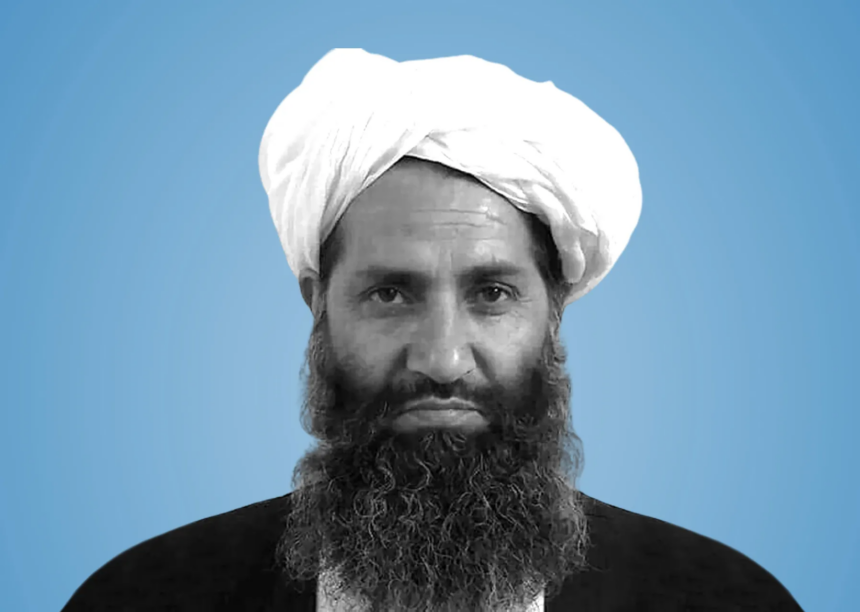RASC News Agency: The Taliban disclosed on Thursday, Aug 28, that their reclusive supreme leader, Mullah Hibatullah Akhundzada, delivered a speech to officials of the Taliban-run Ministry of Education during a three-day assembly in Kandahar. According to the group’s official communiqué, his address centered on the “value and necessity of knowledge, education, and upbringing.” Yet, despite these lofty terms, Akhundzada deliberately refrained from mentioning the most pressing issue facing Afghanistan’s education system: the Taliban’s blanket prohibition on schooling for girls. For millions of Afghanistanī girls who remain locked out of classrooms, the speech was another cruel confirmation that their rights, aspirations, and futures are of no consequence to the Taliban hierarchy.
The statement added that the Taliban’s acting Education Minister and several religious clerics were in attendance. Akhundzada reportedly urged them to encourage families to send their children to religious seminaries, reiterating the “importance of knowledge in Islam.” Critics, however, note that such rhetoric is deeply hollow, for the Taliban’s interpretation of “education” has become synonymous with indoctrination, not enlightenment. While boys are pushed into narrow, dogmatic madrassa-based schooling, girls are erased entirely from the nation’s educational landscape.
This silence, four years into Taliban rule, is not accidental it is a policy rooted in ideological hostility to gender equality. Since August 2021, millions of Afghanistani girls and women have been barred from attending schools, universities, and professional institutions. The Taliban’s obsessive erasure of women from public life reveals a deliberate project of social engineering, one that seeks to confine half the population to permanent subjugation. What Akhundzada portrays as “protecting morality” is, in truth, the destruction of women’s potential, families’ aspirations, and the nation’s intellectual future.
The consequences of this policy are catastrophic. A generation of young girls has been deprived not only of the right to learn but also of the chance to dream of careers in medicine, law, education, or government. Families across Afghanistan describe the despair of daughters forced into silence, their ambitions reduced to shadows. “Every day my daughter asks why she cannot return to school,” said a Kabul resident interviewed by media. “I have no answer only the shame of living under rulers who see her mind as a threat.” Meanwhile, international legal scrutiny of the Taliban is intensifying. The International Criminal Court (ICC) has recently issued an arrest warrant for both the Taliban’s supreme leader and its chief justice, accusing them of crimes against humanity, specifically for their systematic assault on women’s rights and suppression of fundamental freedoms. Human rights experts say this recognition underscores that the Taliban’s campaign against women is not simply repression it is a historic crime of persecution, designed with precision and implemented with cruelty.
For global observers, the contradiction between the Taliban’s hollow praise of “knowledge” and their relentless war on female education exposes the regime’s hypocrisy in its starkest form. Behind Akhundzada’s carefully scripted silences lies an unyielding strategy of exclusion. As long as the Taliban remain in power, Afghanistan will stand as the world’s most extreme example of gender apartheid a nation where half the population is not only silenced but erased.






